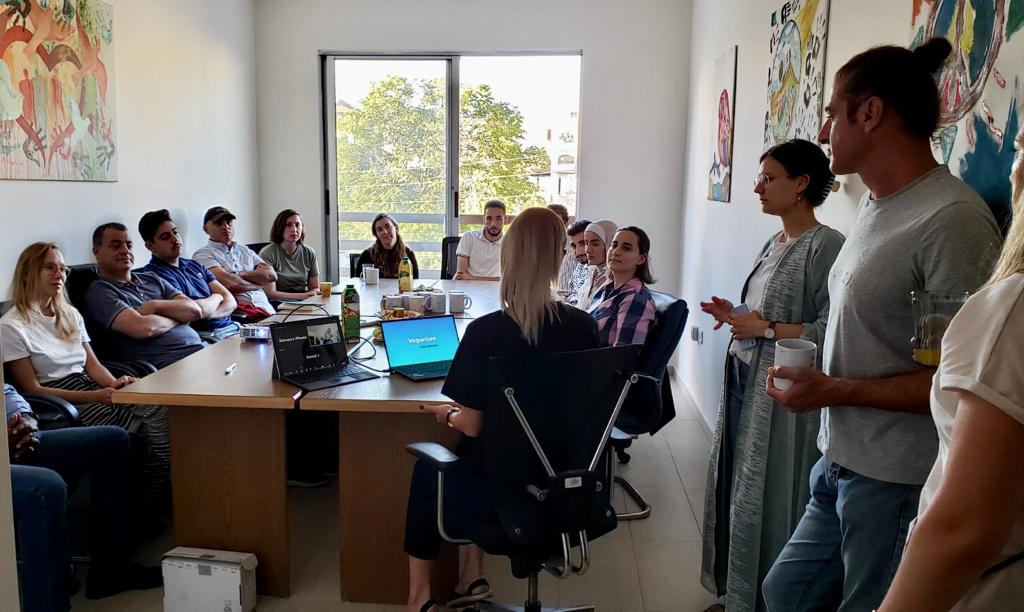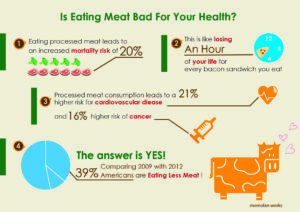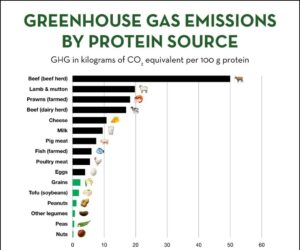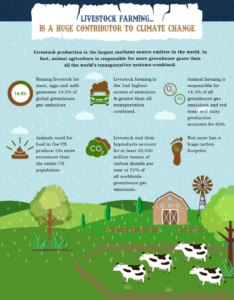Let’s start with a little puzzle to talk about the previous cultural café:
Every day you think about it. Every day you smell it. Every day you see it. Every day you should do it.
What is one of the most profound things in human life – except of breathing and drinking?
Eating.
Usually, you think about, smell, and see food every day.
But how conscious are you when choosing what to eat? Are you aware of how your everyday decision on what to eat impacts your health and the environment around you?
The topic of the third cultural café at URI MENA was Veganism. Sara Banna, a professional cook as well as animal, and refugee rights activist, shared her knowledge about a healthy lifestyle with the participants. She has lived in Romania and Italy and collected vast experience and expertise in vegan cooking and animal rights activism. Six years ago, Sara brought it to Jordan and opened the first vegan restaurant in Amman called Bayt Sara.
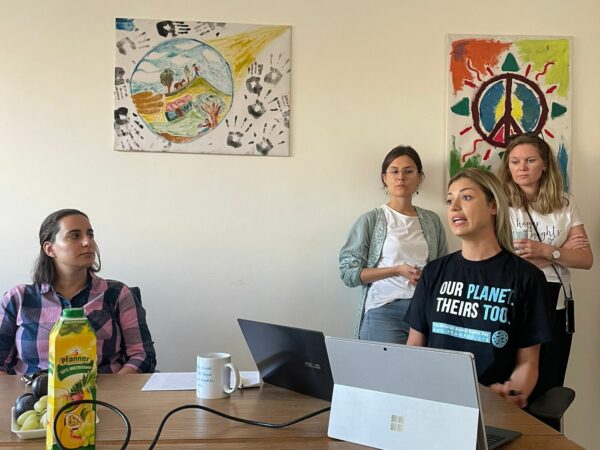
Vegan, Veganism, vegan diet – What is it exactly?
People who stick to a vegan diet do not eat meat (chicken, beef, offal) or fish. In addition, vegans do not consume animal products such as eggs, dairy products, or honey. Also, vegans avoid using products derived from animals in any kind of form, like leather, fur, silk, wool, cosmetics, and soaps.
The reasons to stick to this particular diet are vast. Mainly, it’s about considering the origin of food and that every choice we make has consequences – consequences for us, the planet, and the animals themselves.
For example, the way meat and animal products are produced is harmful. Slaughterhouses and animal factories want to make as much profit as possible. The production mechanism is adapted to reducing costs and is not in line with the well-being of animals or people who work there. Most animal farms mix hormones and antibiotics in the animal’s food to enhance the meat output. You cannot get rid of these substances before you consume them. Due to that, your chances of immune failure, getting more allergies, having higher blood pressure, and suffering from heart disease are higher. These results on human health are proven scientifically.
Sara also highlighted another reason for becoming a vegan: ethical reasons. This is closely linked to the example above. Mass production is ruthless and cruel. Animals are under immense pressure and treated horribly, and most do not see a single light of sunset. It is heartbreaking but facing reality is important. Have a look at the documentaries on Netflix:
- Okja
- Cowspiracy
- What the Health
Lastly, Sara explained the effects of meat consumption on climate change. The participants were shocked to hear that 2.272 liter of water is necessary to produce one burger. Yes, you read that number right! So much water for one burger equals the water needed to shower for two months. Furthermore, raising animals (to slaughter them later) uses a staggering 30% of the Earth’s land mass. Here is another documentary that highlights to the effect of meat production on climate change: David Attenborough: A Life on Our Planet
All participants were shocked by the facts Sara presented. It was an eye-opening talk that made the participants reflect on their food. If you haven’t been there, you missed the fantastic samples Sara brought with her; Vegan shwarma! This delicious meal proved that you don’t need meat or other animal products to enjoy a yummy, healthy dish.
Throughout her speech, Sara emphasized that it’s not about judging someone on his diet. It’s not about dividing humans into good and bad people based on their eating behavior. It’s your choice. You decide when and what you’re consuming. But don’t be ignorant and think about what you’re fueling your body with. And very importantly, you’re not forced to cut off meat entirely. It’s about reducing and consciously making your choice.
With that being said, bon appetit! 🙂
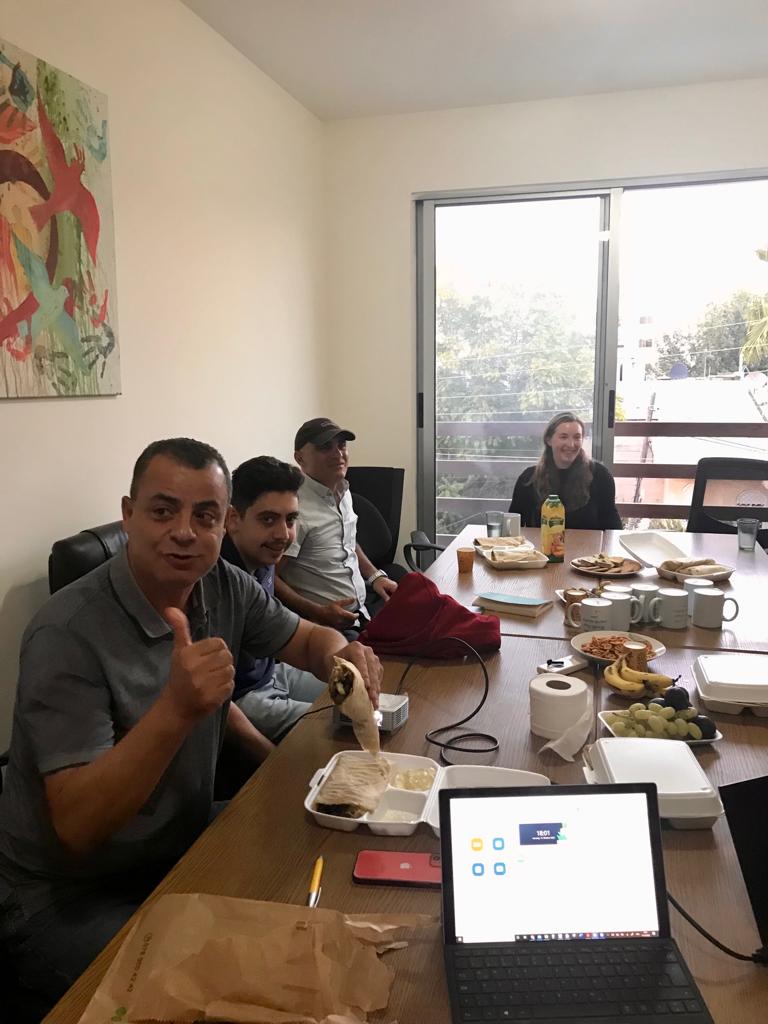
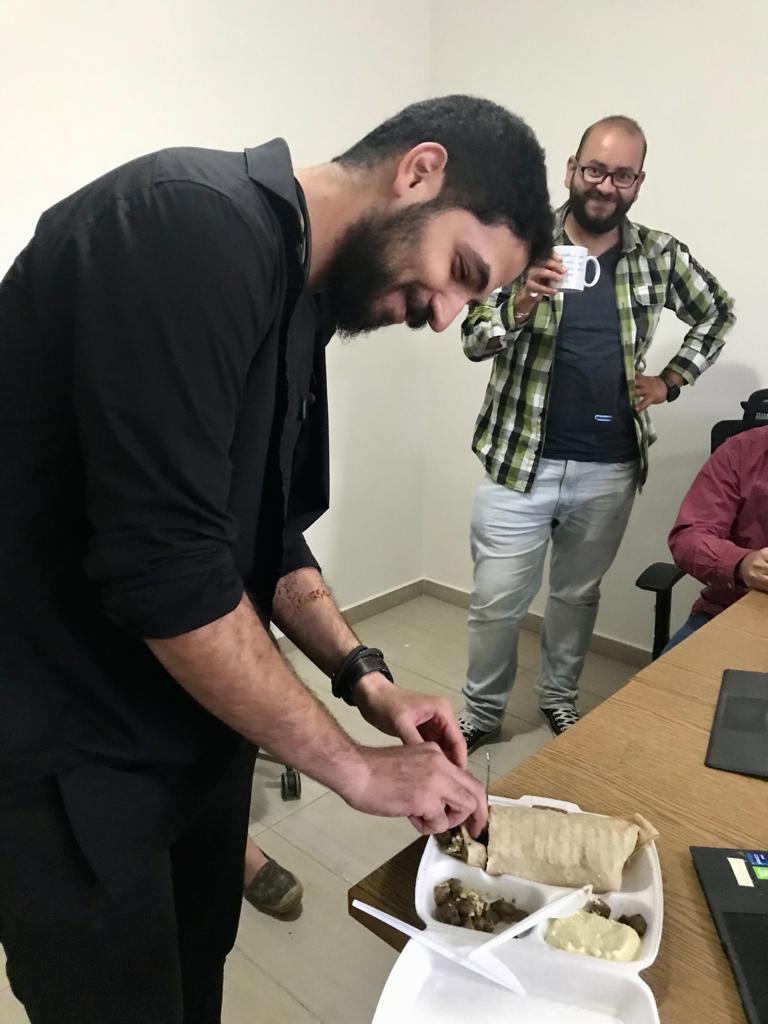
Check out the other Cultural Cafes with external speakers:
- Mini Workshop about How to write Poems
- Mini Workshop about How to tell a great Story
- Mini Workshop on How to identify Fake News
